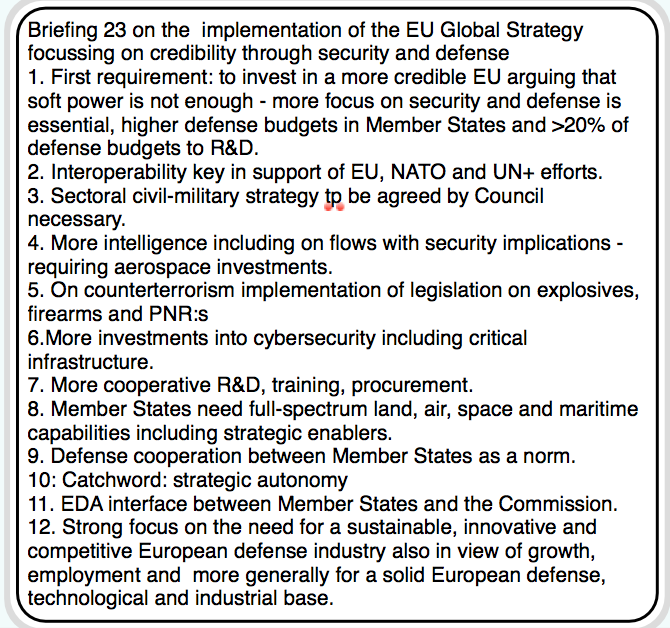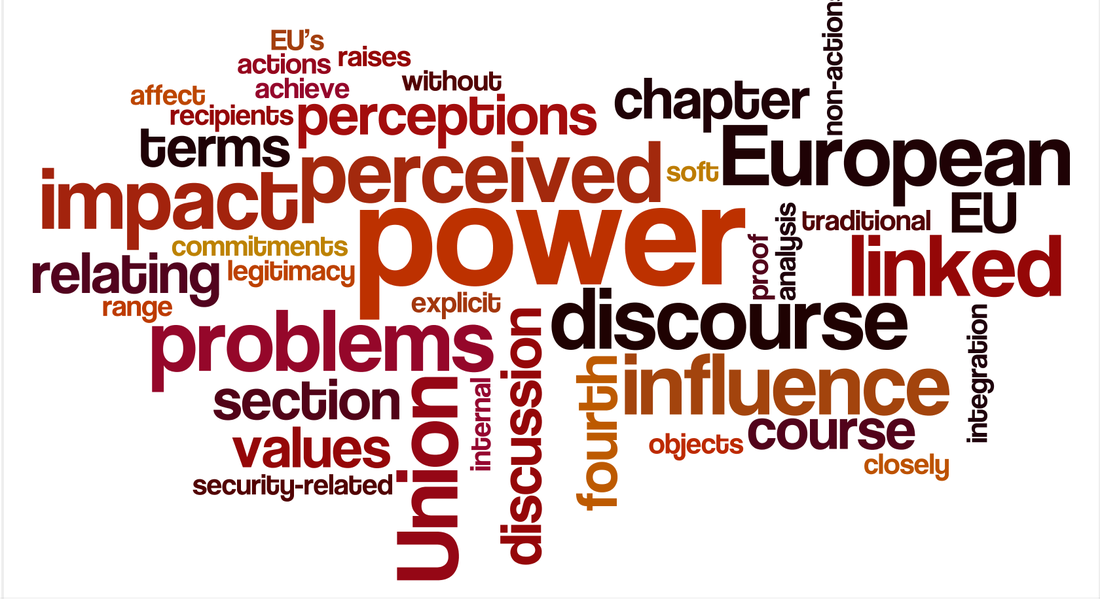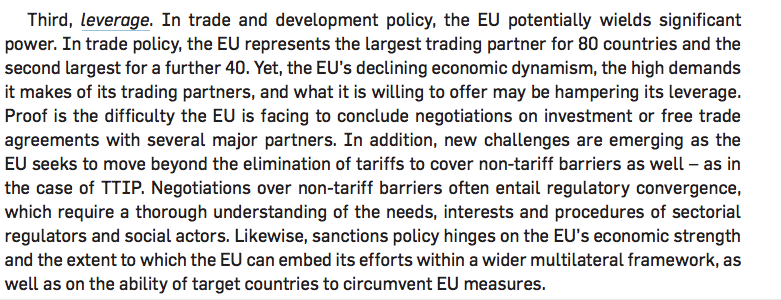Youtube summary:
Explore more in depth on Prezi:
After following the presentation feel free to zoom in and out yourself seeing the
entire scope of the mindmap covering this site now with more than 250 slides with direct links to pages inside and outside the website.
|
|
Different ways to influence: where is the EU from this perspective?
On this and the following pages: Enabling influence through assistance, restrictive influence using leverage through sanctions etc., influence based upon policies seeking to promote EU values and interests as well as influence on perceptions and soft power
|
From the handbook on EU and security: |
Zooming out on power, and ways to influence - my own reflections
Influence is in the eyes of the beholder and depends on the context.
On this website I focus on the EU and security. At the same time it is important to situate the EU and its member states in the context of the overall debate about European interests and the issue of deterrence.
When explicitly asked many people may tell you that deterrence is vital for conflict prevention (see as an example the poll to the left) – the point of departure for this website and for my book on EU and security.
At the same time you will look almost in vain when searching for material on deterrence in my book. Most analysts and also politicians discount the EU in the deterrence discourse. Individual attempts have been made to develop the concept of a European army in recent years, notably by the president of the European Commission. But in the Brexit debate this is a red flag.
Therefore when referring to EU influence as illustrated by the polls taken on this website most people may refer to the concept of leverage rather than deterrence.
At the same time the entire effort not least by France to develop a certain level of autonomy in CSDP indicates the perceived need to create a European identity in defence, noting more or less explicitly that there are situations where the interest of the United States may not be on the same level as interests of European states. A case in point in the debate has been Western Balkans in the 90s and now perhaps Africa.
For the United States to engage through deterrence it would normally be expected to be a question of vital American interests, as sometimes even explicitly enumerated for instance in the program documents of the Republican Party.
As argued by Kissinger already in the 50s this requires to be able to act through a chain of capabilities from conventional to nuclear.
The worry on the part of a number of European states, including in the debate also in non-NATO countries such as Sweden, is that the United States may already in peacetime signal that a number of European security situations cannot be expected to fully engage the US.
In this sense the situation in Europe is very different in comparison to the one at the end of the Cold War when still hundreds of thousands of American soldiers and other assets were deployed across Europe.
More American physical presence in countries such as in the Baltic area is therefore by many regarded as essential.
The focus in the security policy debate about territorial defence. including in the Nordic area is very much on NATO and the situation in and around Ukraine where the territorial integrity of a European state has recently been violated by Russia.
For those arguing in favour of Swedish accession to NATO it is vital to make the American security guarantee to Europe as credible as possible.
Others argue that more reflection is needed about the interrelationship between deterrence and conflict prevention on European soil.
Others again refer to the need for more conventional defence efforts on the part of Sweden and other European countries to increase deterrence in specific conflict scenarios, for instance involving the island of Gotland in the Baltic Sea.
Still it is notable that in this entire debate the notion of making European defence efforts more effective through more interoperability, less fragmentation of defence capability projects and better cooperation between the EU and NATO is almost absent.
The ambition to maintain and strengthen national defence industry efforts is instead often put forward as a more important objective.
(To be continued)






